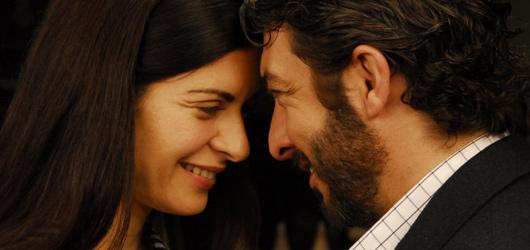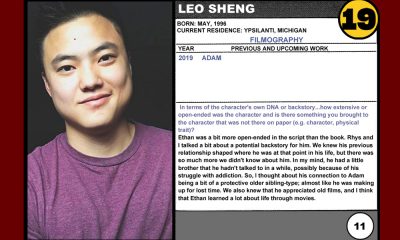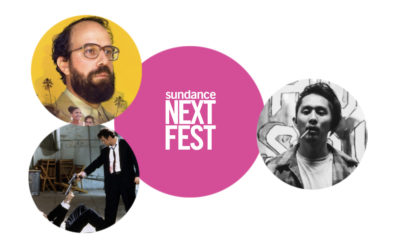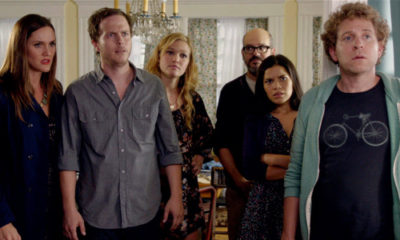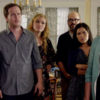Retro IONCINEMA.com
Interview: Juan Jose Campanella (The Secret In Their Eyes)
…this movie was a huge hit in Argentina; it struck a chord with it. It was the most successful in 35 years. People were so ready for it, I don’t know what would’ve happened if we hadn’t won.
The Secret in Their Eyes, from Argentinean director Juan Jose Campanella, is a riveting murder mystery that not only was one of the biggest cinematic successes in Argentina, but also won the Academy Award for this year’s Best Foreign Language Film beating out heavyweights The White Ribbon and A Prophet.
Based off of the novel La pregunta de sus ojos, by Eduardo Sacheri, this follows the past and present lives of Benjamin Esposito (re-teaming with Ricardo Darin) a retired federal justice agent, who is obsessed with a rape/murder case from 1974 that he investigated and closed, but still feels has unanswered questions. His obsession is not just about the case, but about his unrequited love for a fellow lawyer (Soledad Villamil) and his own years of loneliness and isolation years after the case. The story blends seamlessly between the times, using a color shading to highlight the bold memories of the past and the muted realities of the present.
There is some surprising humor in the film, mostly courtesy of famed Argentinean comedian (Guillermo Francella). At times, the film is quite Fincher-esque with shades of such films as Seven and Zodiac. It shares that unrelenting search for a killer, the mental toll it takes on its investigators who can’t let it go, and the years of paperwork and files that don’t lead anywhere. The Secret in Their Eyes opens April 16th, and I spoke with the Oscar winning director recently in NYC.

Melissa Silvestri: How was the five-minute one-shot tracking shot in the stadium done?
Juan Jose Campanella: The shooting was actually not that long, it was three days. A producer once told me I can do things well, cheap, and fast, and he gave me two. (laughs) Cheap is slow, because we didn’t really have much money to make it. We were about 15 people working on it for almost nine months. So obviously not one take, from the helicopter to the bleachers, you have to have a fusion there. But it’s really invisible; they worked very hard at it.
Silvestri: And that scene was not in the book?
Campanella: It was everything I was interested in adding into the movie, which was the passion thread. Everything in the movie was the crime. It’s more than just passion, it’s perverted passion. So that’s why I wanted to find the guy, not because he left any clues or any fingerprints or DNA. So we worked with that. {On} the decision of making it in one shot; I had very little time to make the audience feel the adrenaline of that chase. I started with that convention in mind, so we had the aerial shot. We also {knew} a convention of at a certain point, you cut to the audience. So when you’re not cutting, you follow {the main characters}, and you see the audiences lean forward in their seat. It’s really effective, being so into the pictures. You’re there with them, and you’re part of the chase. Then it becomes personal, and that makes it more exciting and riveting than if we just had guys running after each other.

Silvestri: Were you surprised to get an Oscar?
Campanella: I was very relaxed; I took the nomination as an honor. And that was fine, I never thought about it. Many blogs and magazines, like Entertainment Weekly, were talking and talking, and I became a nervous wreck and couldn’t sleep anymore. And I went there thinking we were in the running, actually. Of course, I was surprised, but it didn’t take me out of the room, because a lot of people were saying that we would win. There was that week of the love there, in Argentina. It was like defeating Brazil in football. But it was bigger than you would expect. It was 1:30 in the morning when they announced it in Buenos Aires. And you could hear the screaming from the apartment. This last week was quite crazy.
Silvestri: It was the only other Argentinean film to win the Oscar Best Foreign Language Film (other than The Official Story in 1985). How did you feel about that?
Campanella: I was nominated before in 2002 with Son of the Bride. I don’t know what happened with this movie. Maybe, like in soccer, when you like the team, you push more for it. And this movie was a huge hit in Argentina; it struck a chord with it. It was the most successful in 35 years. People were so ready for it, I don’t know what would’ve happened if we hadn’t won.

Silvestri: There was a mix of humor in with the murder mystery that made it interesting and funny to watch at times.
Campanella: I don’t know how it’s worked here, but in Argentina, people laughed a lot at the movie. And the actors never played it for laughs. But when the guy scares his friend {by sneaking up on him}, usually in a film you’d usually have the guy go “Huh?” But in real life, you would jump and hit the ceiling. So the truth of that moment, going “you goddamn . . .” When someone scares me, I insult them for ten minutes! So I told Ricardo {Darin}, you just keep telling him, “Fuck you, fuck you!” I think that people relate to the real reactions of characters to what’s happening. I think that’s the only secret in it.
Silvestri: How did you balance the cinematography of the present day scenes vs. the past scenes?
Campanella: The scenes in the past had very bold colors, and muted in the present. We wanted to work the past in like when you are remembering something, you forget details, and only the bold strokes stand out. The past scenes are all coming from this guy’s memory, so it’s a very dominant, strong color. In the present, memory has no part, everything is the same, muted and de-saturated, and without any charms, in a way.
Silvestri: What was Argentina’s political atmosphere like at the time of the film, and how does it relate to the film?
Campanella: In the novel, the past respects the real time, so the crime takes places in 1968, and he escapes in 1976, {and the present-day scenes.} We couldn’t afford having eight changes of fashions and looks; it would be reducing the tension. So we decided in these two years (1974-76), these years before. Because there was a perceived threat of terrorism in Argentina, they started taking liberties one by one, until they started with death squads to eliminate terrorists, and it took the people working in the Justice system by surprise. If we had started with that dictatorship that started in 1976, everybody would know exactly what the deal with. They wouldn’t go “How could you free that guy?” They were very domesticated at that time. So we chose to show the time of democracy, before the obliterating of personal liberties began. We also thought it was more relevant to what is happening today.
Sony Pictures Classics releases Juan Jose Campanella’s The Secret in Their Eyes in theaters on 16th of April.



